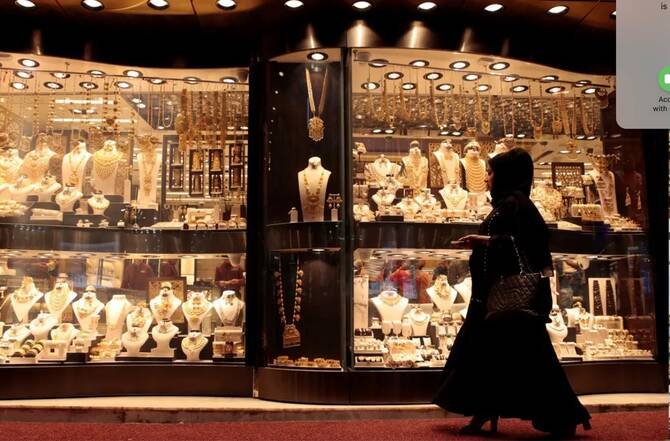In a remarkable display of financial foresight, the Central Bank of the United Arab Emirates (CBUAE) has significantly bolstered its gold reserves by an impressive 26% within the first five months of the year. This strategic move underscores the nation’s commitment to enhancing its economic resilience and diversifying its assets in the face of global financial uncertainties.
By the end of May 2025, the CBUAE’s gold reserves had surged to an estimated $7.9 billion, up from approximately $6.3 billion at the close of 2024. This substantial increase reflects the central bank’s proactive approach to strengthening the UAE’s financial position on the global stage.
The decision to ramp up gold holdings aligns with a broader trend observed among central banks worldwide, aiming to reduce dependency on traditional reserve currencies and mitigate risks associated with economic volatility. The UAE’s actions are a testament to its strategic planning and adaptability in an ever-evolving global economic landscape.

Factors Driving the Surge in Gold Reserves
Several key factors have contributed to the UAE’s decision to significantly increase its gold reserves:
1. Global Economic Uncertainties
The global economic environment has been marked by fluctuations in currency values, trade tensions, and geopolitical instability. In such times, gold serves as a safe-haven asset, preserving value and providing a hedge against inflation and currency devaluation.


2. Diversification of Reserve Assets
Historically, central banks have relied heavily on the US dollar as a primary reserve asset. However, recent trends indicate a shift towards diversifying reserves to include gold and other assets. This diversification strategy helps mitigate risks associated with over-reliance on a single currency.
3. Strengthening Financial Sovereignty
By increasing its gold reserves, the UAE aims to enhance its financial sovereignty, reducing vulnerability to external economic shocks and asserting greater control over its monetary policy.
Implications for the UAE’s Economy
The substantial increase in gold reserves carries several positive implications for the UAE’s economy:

1. Enhanced Economic Stability
A robust gold reserve acts as a buffer against economic downturns, providing the central bank with the flexibility to implement effective monetary policies and maintain economic stability.
2. Strengthened Investor Confidence
The proactive accumulation of gold reserves signals to investors that the UAE is committed to safeguarding its financial interests, thereby boosting investor confidence and attracting foreign investment.
3. Improved Credit Ratings
Credit rating agencies often view substantial gold reserves favorably, as they enhance a nation’s ability to meet its financial obligations. This could lead to improved credit ratings for the UAE, lowering borrowing costs and enhancing access to international capital markets.
Looking Ahead: The UAE’s Vision for Financial Resilience
The UAE’s strategic expansion of its gold reserves is not merely a reactive measure but part of a long-term vision to bolster financial resilience. By proactively managing its reserve assets, the UAE positions itself as a forward-thinking nation prepared to navigate the complexities of the global financial system.

This move aligns with the UAE’s broader economic diversification efforts, which include investments in technology, renewable energy, and infrastructure. By strengthening its financial foundation, the UAE aims to ensure sustainable economic growth and stability in the years to come.
In conclusion, the UAE’s decision to increase its gold reserves by 26% to $7.9 billion within the first five months of 2025 reflects a strategic and forward-looking approach to economic management. This bold move enhances the nation’s financial stability, investor confidence, and global economic standing, setting a positive precedent for other nations to consider in their own economic strategies.
Do follow UAE Stories on Instagram
Al Khawaneej Restaurant Launch: Three Emirati Visionaries Transform Dining













